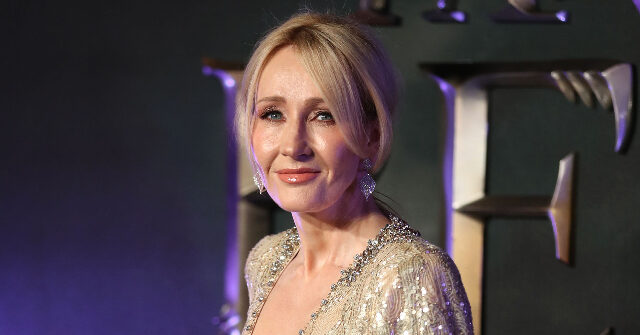In a recent outburst on social media platform X, J.K. Rowling, the renowned author of the “Harry Potter” series, criticized the New York Times for how it framed the violent threats she has received for her outspoken views against transgender activism. She shared a screenshot of an article from the Times titled “Transgender Activists Question the Movement’s Confrontational Approach,” which appeared to downplay the intensity of the backlash faced by those opposing gender ideology. In her post, Rowling highlighted the disparity between the article’s portrayal of her experiences and the reality of the countless threats and harassment she has endured, asserting that the violence directed towards her was not merely criticism but often involved severe personal attacks.
The New York Times article acknowledged Rowling’s comments regarding the relationship between sex and biology, which she described as being belittled by prominent LGBTQ+ groups claiming she betrayed “real feminism.” Additionally, the piece noted the increasing criticism from some transgender activists, who are reconsidering their more aggressive tactics. Rowling responded to this notion by asserting that her experiences go far beyond harsh words; she has faced an avalanche of threats, including murder, rape, and violence, and even her home address was shared publicly with malicious intent. Furthermore, she pointed out that her family has faced dangers and targeted attacks, illustrating the personal toll of standing up to a movement that employs intimidation as a means of silencing dissent.
In detailing the consequences of standing against the dominance of gender ideology, Rowling stressed that her experiences are just one aspect of a larger issue affecting many individuals who challenge the current narrative. She remarked that not only has she and her family been subject to threats, but many others have suffered similarly severe consequences. Rowling emphasized that numerous individuals have lost their jobs or faced physical assaults for voicing their concerns about gender ideology, with even female politicians needing to take security measures due to intimidation. She pointed out the case of Dr. Hillary Cass, a leading endocrinologist in the UK, who received warnings about her safety, thereby emphasizing the severe implications of merely questioning prominent transgender narratives.
Rowling urged her audience not to overlook the targeting of those who have questioned sexual transitioning for children, supported single-sex spaces, or argued for fair competition in women’s sports. She reflected on the changing political landscape, suggesting that even the most ardent proponents of gender ideology are beginning to reassess the consequences of their actions. By mentioning the backlash against feminists advocating for women-only services, Rowling illustrated how society is increasingly recognizing the potential drawbacks of indiscriminately allowing individuals to self-identify as women in spaces traditionally reserved for biological females. Her commentary indicates a growing awareness that such policies can lead to troubling outcomes, especially concerning young girls in areas like sports and safety.
Rowling expressed frustration over what she perceives as a revisionist history emerging in response to the controversies surrounding gender ideology. She criticized those who minimize the experiences of dissenters and asserted that there is a reckoning on the horizon regarding the fallout from the aggressive tactics employed by transgender activists. While acknowledging that a comprehensive review of the societal impacts of gender ideology is still pending, Rowling is adamant that the harsh realities cannot simply be brushed aside. Rather, they must be addressed for the sake of individuals whose lives have been significantly affected by the social and political ramifications of this movement.
As Rowling concluded her remarks, she emphasized that the ongoing discussion about gender ideology must take into account the real, often painful consequences faced by those who speak out. She argued that a deeper examination of the implications of these policies will reveal a landscape marred by intimidation tactics, financial ruin, and personal safety concerns for countless individuals. Through her passionate stance, Rowling aims to ensure that the true cost of challenging gender ideology is acknowledged rather than obscured, signaling that the struggle is far from over and that those advocating for women’s rights and safety must continue to fight against the encroachment of these ideologies in contemporary society.

